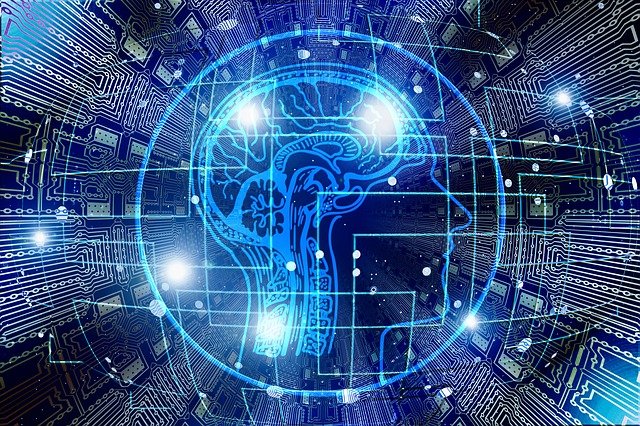고정 헤더 영역
상세 컨텐츠
본문

The future of technology is shaped by Artificial Intelligence. AI development services have revolutionized various sectors with their innovative capabilities. As we enter 2023, we can expect new developments and challenges in the field of AI. In this article, we’ll discuss the five AI trends that will influence the tech scene in the next year.
Understanding the Significance of AI
AI is the key to technological progress, as it allows machines to mimic human intelligence. AI has shown its potential in various domains, from improving productivity in routine tasks to transforming complex decision-making.
- Efficiency and Automation: AI automates mundane tasks, saving time and resources. This frees up humans to work on more challenging and strategic matters, resulting in better outcomes.
- Data Analysis and Decision-Making: AI handles and analyzes massive amounts of data, providing useful insights for smart decision-making. It helps to discover patterns, trends, and connections within complex datasets.
- Innovation and Creativity: AI expands the horizons of creativity and innovation. Generative AI, for example, can produce art, music, and literature, demonstrating a new facet of human creativity and expression.
- Improved User Experiences: AI delivers personalized experiences, leading to higher user satisfaction. From suggesting content in entertainment platforms to offering recommendations in e-commerce, AI improves user interactions by providing relevant and customized content.
- Advancements in Healthcare: AI contributes to healthcare, leading to improvements in diagnosis, treatment, and drug discovery. It has the potential to enhance patient care by providing more accurate and timely medical interventions.
These significances show how AI development companies in India are transforming various sectors, from improving processes and intelligence to fostering creativity and improving the quality of human life.
5 AI Trends to Take Shape 2023
1. Rapid Democratization of AI Tech and Research
AI is becoming more accessible to a wider audience, beyond the tech experts. The AI for every one trend involves making AI tools and technologies available to businesses of all sizes. This trend is fueled by the availability of open-source tools and platforms, enabling even smaller companies to use AI in their operations.
Example: Imagine a local retail store using AI-driven inventory management, adjusting stock levels based on customer trends and seasonal demands.
Platforms like Google Cloud AI Platform and Microsoft Azure ML are helping businesses to use AI in their operations easily.
2. Generative AI Taking It Up a Notch
Generative AI, known for its ability to create realistic content, is reaching new heights in 2023. From art to writing, generative AI algorithms are becoming more advanced, creating content that is hard to distinguish from human-made content.
Example: Picture an AI-generated piece of music that not only copies the style of your favorite artist but also adds unique elements, creating a completely new and captivating musical experience.
OpenAI’s GPT-4, the latest version of generative AI, is impressing everyone by generating human-like text and content with unprecedented accuracy.
3. Heightened AI Industry Regulation
With great power comes great responsibility. The AI industry is preparing for stronger regulations in 2023. With the growing impact of AI on various aspects of life, governments and regulatory bodies are intervening to establish guidelines and frameworks for ethical AI use ensuring that it aligns with societal values and protects against potential risks.
Example: Think of regulations similar to those in the pharmaceutical industry, ensuring rigorous testing and compliance with ethical standards before a new drug is released to the public.
4. More Emphasis on Explainable AI
As AI becomes more important to decision-making in critical areas like healthcare and finance, there is a growing need for transparency to build trust and accountability. Explainable AI focuses on developing AI models that provide clear and understandable explanations for their decisions, making the decision-making process transparent.
Example: Consider a medical diagnosis made by an AI system that not only identifies the condition but also explains the specific indicators and factors influencing the conclusion, building trust between physicians and AI.
5. Increased Collaboration Between Humans and AI
Human-AI collaboration is not a new concept, but in 2023, it’s expected to take center stage. Rather than replacing human workers, this trend involves AI working together with humans, enhancing their capabilities, and increasing overall productivity.
Example: Visualize a customer service team supported by AI chatbots that handle routine queries. This allows human agents to focus on more complex and nuanced customer interactions, ultimately improving overall service quality.
Healthcare is leveraging AI development services to employ AI to assist doctors in diagnosing diseases, enabling more accurate and timely treatment decisions.
Conclusion
The AI landscape in 2023 is changing rapidly, and these trends show how we will interact with technology differently. The accessibility of AI development companies in India, improvements in creative abilities, regulatory frameworks, transparency, and increased collaboration highlight a future where AI acts as a force for good. Adopting these trends responsibly will surely lead to a more inclusive, innovative, and ethically sound technological era.




